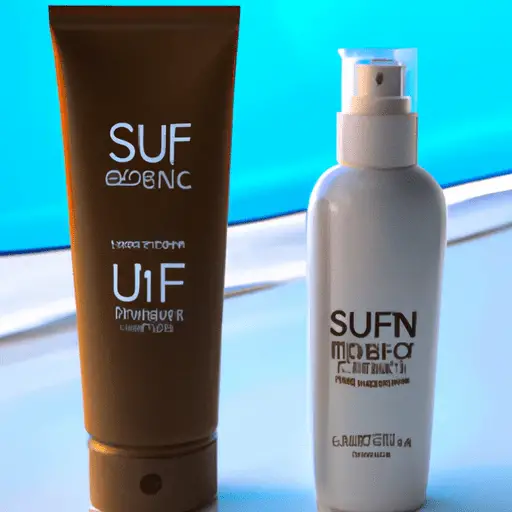-
Table of Contents
- How to Incorporate Sun Protection into Your Daily Skincare Routine
- Key Takeaways
- Introduction: The Sun and Your Skin
- The Importance of Sun Protection
- Choosing the Right Sunscreen
- Incorporating Sunscreen into Your Daily Skincare Routine
- Additional Sun Protection Measures
- Common Misconceptions About Sun Protection
- FAQ Section
- 1. Can I skip sunscreen if my makeup has SPF?
- 2. How much sunscreen should I apply?
- 3. Can I use the same sunscreen for my face and body?
- 4. Is sunscreen safe for daily use?
- 5. Can I use expired sunscreen?
- Conclusion: Protecting Your Skin from the Sun
- Key Takeaways
How to Incorporate Sun Protection into Your Daily Skincare Routine

[youtubomatic_search]
Key Takeaways
- Understanding the importance of sun protection in skincare.
- Choosing the right sunscreen for your skin type.
- Incorporating sunscreen into your daily skincare routine.
- Additional sun protection measures beyond sunscreen.
- Common misconceptions about sun protection.
Introduction: The Sun and Your Skin
Exposure to the sun’s ultraviolet (UV) rays can cause significant damage to the skin, leading to premature aging, skin discoloration, and even skin cancer. Despite these risks, many people neglect to incorporate sun protection into their daily skincare routine. This article aims to highlight the importance of sun protection and provide practical tips on how to effectively incorporate it into your daily skincare regimen.
The Importance of Sun Protection
According to the Skin Cancer Foundation, one in five Americans will develop skin cancer by the age of 70, and more than two people die of skin cancer in the U.S. every hour. More than 90% of the visible changes commonly attributed to skin aging are caused by the sun. Therefore, sun protection is not just about preventing skin cancer; it’s also about maintaining youthful, healthy skin.
Choosing the Right Sunscreen
Not all sunscreens are created equal. The American Academy of Dermatology recommends using a sunscreen that offers broad-spectrum protection (protects against UVA and UVB rays), has an SPF of 30 or higher, and is water-resistant. It’s also important to choose a sunscreen that suits your skin type. For example, if you have oily skin, a lightweight, oil-free sunscreen might be a good choice.
Incorporating Sunscreen into Your Daily Skincare Routine
For maximum protection, sunscreen should be applied every day, not just on sunny days. UV rays can penetrate clouds and even glass, so it’s important to protect your skin even when you’re indoors. Apply sunscreen as the last step in your morning skincare routine, after moisturizer but before makeup. Remember to reapply every two hours, or immediately after swimming or sweating.
Additional Sun Protection Measures
While sunscreen is a crucial part of sun protection, it’s not the only measure you should take. Wearing protective clothing, such as long-sleeved shirts, wide-brimmed hats, and sunglasses, can provide additional protection. Seeking shade during peak sun hours (10 a.m. to 4 p.m.) can also help minimize UV exposure.
Common Misconceptions About Sun Protection
Many people believe that they don’t need to worry about sun protection on cloudy days or during the winter months. However, up to 80% of the sun’s harmful UV rays can penetrate clouds, according to the American Academy of Dermatology. Snow can also reflect up to 80% of UV rays, increasing the risk of exposure. Another common misconception is that people with darker skin don’t need sunscreen. While darker skin does have more melanin, which provides some natural protection against UV rays, it’s not enough to prevent skin damage or skin cancer.
FAQ Section
1. Can I skip sunscreen if my makeup has SPF?
No. While makeup with SPF can provide some protection, it’s usually not enough on its own. You would need to apply a lot of makeup to get the same level of protection as a sunscreen.
2. How much sunscreen should I apply?
The American Academy of Dermatology recommends applying enough sunscreen to fill a shot glass (about an ounce) to cover all exposed areas of the body.
3. Can I use the same sunscreen for my face and body?
Yes, as long as it’s suitable for your skin type. However, some people prefer to use a separate facial sunscreen, as these are often formulated to be lighter and less greasy.
4. Is sunscreen safe for daily use?
Yes. The benefits of daily sunscreen use far outweigh any potential risks. If you have sensitive skin, look for sunscreens labeled as hypoallergenic or for sensitive skin.
5. Can I use expired sunscreen?
No. Expired sunscreen may not provide adequate protection. Always check the expiration date before using.
Conclusion: Protecting Your Skin from the Sun
Incorporating sun protection into your daily skincare routine is crucial for maintaining healthy, youthful skin and preventing skin cancer. By choosing the right sunscreen, applying it correctly and consistently, and taking additional sun protection measures, you can significantly reduce your risk of skin damage and skin cancer.
Key Takeaways
- Sun protection is crucial for preventing skin cancer and premature skin aging.
- Choose a broad-spectrum, water-resistant sunscreen with an SPF of 30 or higher.
- Apply sunscreen every day as the last step in your morning skincare routine.
- Take additional sun protection measures, such as wearing protective clothing and seeking shade during peak sun hours.
- Don’t believe the common misconceptions about sun protection. UV rays can penetrate clouds and glass, and even people with darker skin need sunscreen.
[youtubomatic_search]

Leave a Reply